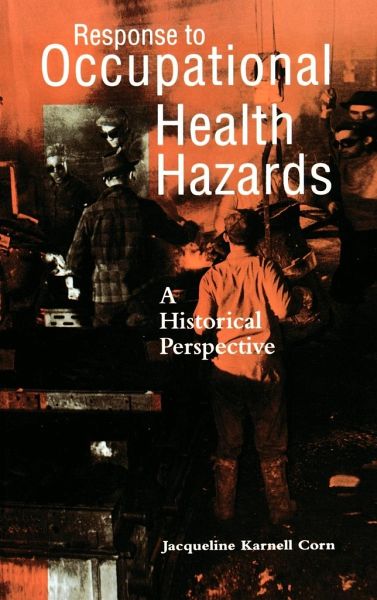
Response to Occupational Health Hazards
A Historical Perspective
Versandkostenfrei!
Versandfertig in über 4 Wochen
161,99 €
inkl. MwSt.

PAYBACK Punkte
81 °P sammeln!
What are the effects of industry upon the health of employees? This enormously complex question involves historical, social, political, and scientific issues--and has a major impact on national policy decisions and regulatory activities. This unique book explores the history of occupational disease in the American workplace. Beginning with the centuries-old belief of disease as an acceptable and unavoidable by-product of industrial expansion, it moves to current methods of diagnosis, control and prevention. You will find in-depth coverage of: * the growth of federal responsibility for occupati...
What are the effects of industry upon the health of employees? This enormously complex question involves historical, social, political, and scientific issues--and has a major impact on national policy decisions and regulatory activities. This unique book explores the history of occupational disease in the American workplace. Beginning with the centuries-old belief of disease as an acceptable and unavoidable by-product of industrial expansion, it moves to current methods of diagnosis, control and prevention. You will find in-depth coverage of: * the growth of federal responsibility for occupational risks * the evolution of mandatory health standards * risk assessment and federal policy 1970-1990 * case studies of lead, asbestos, vinyl chloride, silicosis and byssinosis and steps taken to control or eliminate these conditions Although the exact numbers are disputed, the Office of Technology Assessment today estimates about 6,000 deaths annually due to workplace injuries and about 100,000 deaths due to occupational illness. This book is vital for all physicians, industrial hygienists, safety professionals, nurses, lawyers, government policy makers, and others who are continually working to reduce these figures. It points the way to better methods of detection and control innovative diagnostic techniques improved epidemiological methodology and a full understanding of government, labor and management's responsibilities to the health of their workers.


